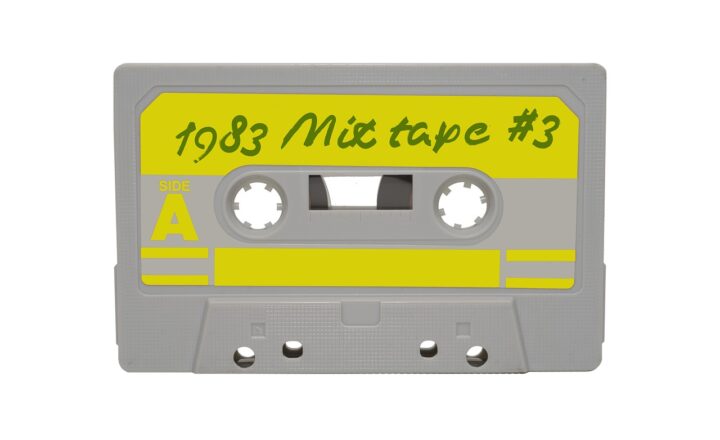The Godfather’s Influence on the World’s View of the Mafia
November 15, 2024

The Godfather, a cinematic masterpiece directed by Francis Ford Coppola and based on Mario Puzo’s novel, was released in 1972 and quickly secured its place in film history. This iconic film not only transformed the genre of crime cinema but also profoundly shaped the public’s perception of organized crime, particularly the Mafia. In this article, we explore the enduring influence of The Godfather on the world’s view of the Mafia, examining how it romanticized, mythologized, and ultimately humanized the figures within the Mafia while simultaneously engendering various societal reactions.
1. The Cultural Landscape Before The Godfather
Before we delve into the film’s impact, it’s essential to understand the context in which The Godfather emerged. The Mafia had long been a subject of intrigue and fear in American society, depicted in newspapers and sensationalized movies. However, most portrayals were simplistic, focusing primarily on violence, corruption, and crime.
This cultural narrative often dehumanized Mafia figures, painting them as mere criminals devoid of emotional depth. Films like Scarface (1932) and others prior focused heavily on the violent aspects while neglecting the interpersonal dynamics and familial connections that existed within these organizations.
2. A New Kind of Criminal: Don Vito Corleone
Upon its release, The Godfather introduced audiences to a multifaceted character in Don Vito Corleone, played masterfully by Marlon Brando. Unlike previous depictions of gangsters, which focused mainly on brutality, Corleone was a man of principle. He had a moral code, albeit a misguided one, and exhibited a deep sense of family loyalty. This complexity was revolutionary and provided a lens through which audiences could engage with Mafia figures beyond simple villainy.
Corleone was a businessman who performed illegal transactions, yes, but he also cared for his family, protected his community, and offered favors to friends as a display of power and influence. This portrayal blurred the lines between good and evil, making him relatable in many ways. The Godfather’s narrative forced viewers to reconcile their views on crime—was the Mafia truly malevolent, or could they be seen as products of a corrupt society?
3. Mythologizing the Mafia Culture
One of the film’s most significant influences is how it mythologized Mafia culture. It introduced audiences to the honor codes, traditions, and rituals of the Sicilian mob, elevating the Mafia from mere criminals to a society grounded in deep-rooted customs and familial connections.
The practices depicted in The Godfather, such as the concept of Omertà (the code of silence), family loyalty, and the rituals surrounding weddings and funerals, framed the Mafia as a distinct culture with its own values and beliefs.
This representation sparked not only fascination but also romanticism, leading to an idealized view of the Mafia in popular culture that persists to this day. The Godfather made the idea of organized crime alluring and glamorous, a stark contrast to the harsh realities of crime and law enforcement.
4. The Godfather’s Impact on Society and Popular Culture
The influence of The Godfather transcends cinema; it permeated various aspects of society and popular culture. After the film’s release, many began to romanticize the Mafia lifestyle, which was evident in various media forms—from television shows like The Sopranos to video games like Grand Theft Auto. This cultural fascination often leads to the glamorization of criminal lifestyles, providing a skewed understanding of reality.
Additionally, The Godfather has sparked significant academic and sociological discourse, with scholars analyzing its themes, character arcs, and cultural implications. The film’s dialogue, character arcs, and iconic quotes like “I’m gonna make him an offer he can’t refuse” have become embedded in everyday language, further perpetuating the film’s influence.
5. The Dangers of Stereotyping
While The Godfather certainly humanized Mafia figures, it also reinforced stereotypes about Italian-Americans. Despite its nuanced portrayal of characters, the film painted a picture of organized crime that suggested all Italian-Americans were somehow associated with or influenced by the Mafia. This correlation had detrimental implications, fostering prejudice and discrimination against entire communities.
Italian-Americans, many of whom were law-abiding citizens, found themselves bearing the brunt of these stereotypes in daily life. The balance between admiration for the characters and the danger of these stereotypes continues to shape perceptions and cultural narratives today.
6. The Legacy of The Godfather
Today, The Godfather stands as one of the most significant films in cinematic history. Its influence on how the world views the Mafia is immeasurable and continues to inspire various art forms and creative expressions. The film’s combination of drama, family dynamics, and moral complexity has set the standard for character-driven narratives.
While it offers a glimpse into the lives of criminals and the allure of their world, it is crucial to remain critical of literature and film that depicts such lifestyles. The Godfather’s portrayal can easily be misconstrued as an endorsement of the Mafia culture rather than a cautionary tale about the consequences of living outside the law.
In conclusion, The Godfather remarkably shaped public perceptions of the Mafia, laying the groundwork for how organized crime is portrayed in cultural narratives. By blending elements of honor, family, and brutality, the film created a lasting legacy that continues to inform and influence our societal view of the Mafia. As we reflect on The Godfather’s impact, it serves as a reminder of the complexities of humanity, even within the lives of those we deem to be criminals.
Conclusion
The Godfather not only transformed the crime genre but reshaped societal views on organized crime, inviting audiences to explore the moral ambiguities of its characters. It solidified the Mafia’s place in cultural history as both feared and admired, a duality reflecting our own struggles with moral judgment and societal norms. As we continue to consume and create narratives about the Mafia, let us strive for a balance between appreciation and critique, understanding that reality is often far removed from the cinematic glamor that defines The Godfather.






